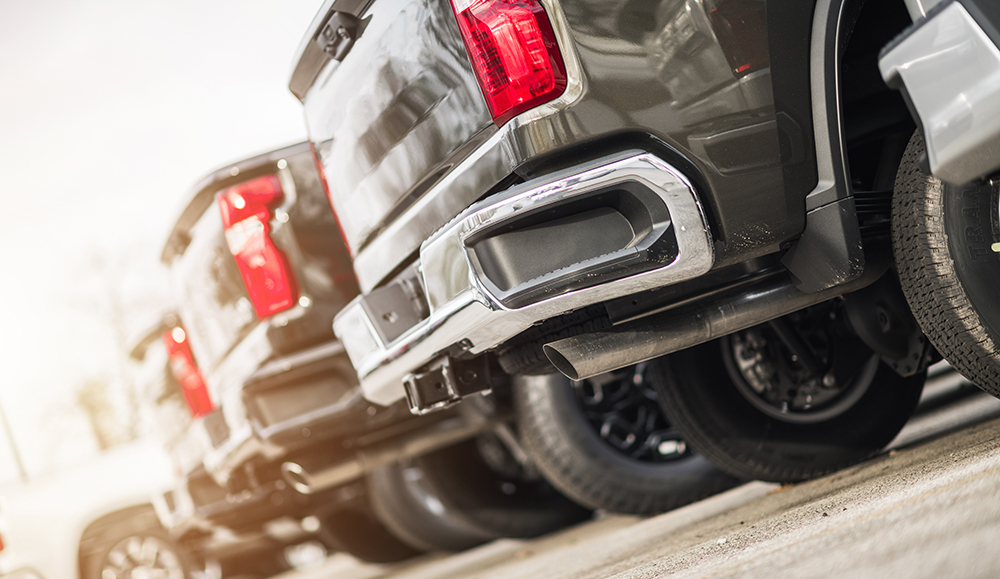
Passed in 1964, the law still prohibits foreign automakers from selling pickup trucks in the United States. And it all started because of chickens.
The Indy Auto Man experts from a preowned auto dealership in Indiana explain why American buyers pay more for an Ineos Grenadier Quartermaster than for the SUV it's based on and nearly half more than for any American 3/4 ton truck.
In fact, no one prohibits companies from selling pickup trucks made outside North America but the duty, introduced in the 1960s, limits the opportunity in response to European dissatisfaction with the supply of American chickens. Because of this, it is called the “chicken tax.” So where did this tax come from, and why is it still affecting the car business?
The origins of this law go back to post-war times when American poultry farmers captured a significant share of the world market. The fact is that during this period, chicken, which was once considered an alternative meat, gradually became a staple food. And not only in the USA. The surge in production led to a sharp drop in prices and allowed overseas poultry farmers to capture more than half of European imports. To protect local producers, Europe decided to impose protective duties on imports from the United States. France and West Germany, among others, actively joined in these efforts, and by 1962, the United States had lost nearly a quarter of its European sales. Tensions over the issue grew so high that Arkansas Senator Fulbright even interrupted a NATO debate on nuclear weapons to discuss the issue of chickens, and immediately after taking office, President Lyndon Johnson signed Executive Order 3564 (effective in January 1964), which imposed a 25% tax on various goods imported from Europe. The annex to the decree mentioned potato starch and its derivatives, brandy, and passenger trucks costing $1,000 or more. At first glance, the last point seems ridiculous and included in the list by accident. What do trucks have to do with it? However, while the chicken war was raging, American automakers had problems. Foreign brands began to gain popularity in the US market. First of all, thanks to Volkswagen models such as the Beetle and Type 2 Van. VW's sales were so impressive that representatives of the Big Three and the United Auto Workers began complaining to President Johnson about it. In response, Johnson included light trucks and vans in the chicken tariff bill to prevent unions from going on strike just before the 1964 election. Immediately after this, VW sales in the country fell sharply. And this is not surprising! The Type 2 minivan, which cost $2,100 in 1964, now sold for $525 more, which in 2024 prices is the equivalent of a $21,200 van rising to $26,500 overnight.
The classification of "light-duty" trucks was based on the gross vehicle weight, and as a result, the law affected almost all European and Japanese pickups and vans. The Chicken Tax applied to vehicles that met the following criteria: anything that falls into the light-duty truck and van category, anything that costs less than £10,000 and is manufactured outside North America. That's why many popular models, including the Volkswagen Amarok, Isuzu D-Maxб Mitsubishi L200, and FIAT Fullback, have never seen American shores. True, the British Ineos Grenadier Quartermaster is still available in the States, but it costs almost 15 thousand dollars more than the Grenadier SUV on which it is based. Thus, as it became prohibitively expensive to sell a European-made pickup truck or minivan, most companies didn't even try, giving an advantage to American automakers and allowing them to dominate the segment. Today, four of the top five best-selling trucks are American brands, with the Ford F-150 (and the entire F-Series) leading the pack for the past 47 years.
Thanks to the active work of the automobile lobby, the “chicken tax” is still in force, which is quite funny, considering that the remaining items of Decree 3564 (potato starch, brandy, etc.) have long been exempt from import duties. Moreover, there are no signs that protectionism toward the auto industry will end anytime soon. Perhaps it will intensify as we plunge into the notorious era of electrification. So, we will hardly see anything other than the Ineos Grenadier on American roads anytime soon.